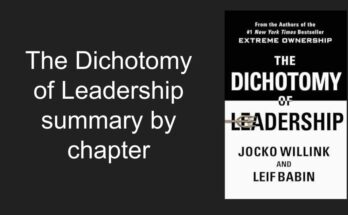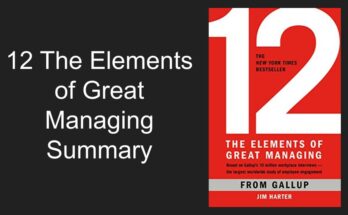Indistractable book summary requests you to put away your distraction on the side and give full focus on this amazing book by Nir Eyal.
Imagine, you have made up your mind to work on your dream project, created all checklists and targets, you have just started your work and an email pops up on your phone.
You get distracted while replying to that email. You also get a couple of messages to respond to, while you are responding to all these, it’s already time for your daily meetings.
By the time you get back to your desk, you have already lost the chain of thoughts for that dream project.
In the era of smartphones. the internet and so-called good connectivity, there are many distractions that derail you from performing best at work or in life.
Imagine, if you are able to manage these distractions, what difference it will make to you, and how well you will be able to perform your job.
If we want to achieve the things we want, we have to learn to manage these distractions. This Indisractable book summary will give key ideas and definitely help you to be indistractable.
What we will learn in indistractable book summary
- Why and how do we get distracted?
- How to manage internal triggers?
- How to make time for the things you like?
- Focus on inputs and not on outcomes
- Schedule time for you
- How to manage external triggers?
- Use precommitments to prevent distraction.
Why and how do we get distracted?
In the indistractable book summary let us see why and how do we get distracted?
Human minds are made for distractions.
We humans, want to avoid uncomfortable situations, and everyday stress and we get distracted, and there are phones with the internet and social media.

However blaming technology for distraction is not the whole truth, we used to doodle, sit idle or simply daydream in old times.
We would do anything to avoid the task we are actually required to do.
We start to read a book after a while, and we find ourselves scrolling through social media.
We start to clean our room and get lost in nostalgia while seeing old personal items.
In the indistractable book summary, we will see what triggers the distraction.
Nir Eyal in this book states there are internal and external factors that are responsible for getting us distracted largely.
Internal factors such as our fear of the unknown, anxiety, depression, or any other mental models.
External factors such as cell phone, internet, email, meetings, chatty coworkers, and meetings.
Unfortunately we humans do not want to get into discomfort, commuting to work – we use cell phones, and in between boring meetings – we scroll through social media.
In this short indistractable book summary, we will see how to manage these internal and external triggers.
How to manage internal triggers?
Distractions are an unhealthy escape from reality.
As we discussed, we humans want to relieve discomfort, and to achieve that we tend to get distracted.
- Observe your emotions carefully that precede the distractions, it can be anger, boredom, or overwhelmedness.
- You can create a journal about how you feel and how it affects your focus during the day.
- While observing your emotions, keep an open mind, and be open and curious about every emotion.
- Observe your day and find out how you get distracted, did that distraction lead to another distraction?
- After a few days, you may identify the patterns of how you get distracted.
Reimagine your tasks
To manage internal triggers for distraction, learn to reimagine your tasks.
Break down your tasks into smaller chunks, and add variability to the regular tasks you have.

Instead of finding a comfort zone and running away from your tasks, make it fun for you by observing small challenges that you may not have seen before.
Arrange your tasks as a game and try to find small wins in them.
Be your own friend
Be easy on yourself when you face failures, setbacks, and bottlenecks in your tasks.
Talk to yourself as your friend would talk to you.
Learning self-compassion helps you to become more resilient to setbacks you face.
How to make time for the things you like? Or really want to do?
Time is our most precious asset and we should be very careful while utilizing this asset.
Unfortunately, time is limited, and how to make the most of it is learning for everyone.
“If I know how you spend your time, I know what might become of you”. In this indistractable book summary, we will see how you can make time for the things you really want to do.
While scheduling our day, keep our values in mind as they are like guiding stars for us.
Ask yourself why these tasks are required to be done instead of asking what to be done.
We spare time for distractions, and we should also schedule time for the tractions- the activities which will push you towards your goals.
Timeboxing is one of the effective techniques for scheduling traction.
While planning for your day, timebox all the activities you are going to do during the day, what you are going to do, when you are going to do and how you are going to do it/
Every week set aside 15 to 20 minutes to reflect on these timeboxes, and as yourself two questions:
- Did I complete all the tasks I timeboxed during this week? How did I get distracted? What strategies can I implement for these distractions?
- What changes do I need to make more time for my values?
In this indistractable book summary now we will see some of the strategies to make time for the thing we really want to do.
Focus on inputs not outcomes
You can’t control the outcomes, but you can control the inputs you put into a task.
You should focus on inputs that you can control, focusing on outcomes may distract you from your tasks.
You will never know when the breakthrough idea will come, but if you don’t show up you are definitely going to fail.
Schedule time for you
If you don’t care for yourself, your goals, tasks, and relationships will be compromised.

You should timebox time for yourself, for activities like exercising, reading, meals, sleep, and personal care.
Schedule time for relationships
The quality of your relationship defines the quality of your life and happiness.
Relationships are like assets, I am not talking about relationships with your friends and families only, your relationships with colleagues, customers, and clients are crucial for your success.
Timebox time for developing and nurturing your relationships.
Sync your calendar with your stakeholders at work
Accept that we get distracted by superfluous tasks by our bosses and colleagues at the workplace.
If possible make your calendar public so that your stakeholders can know what tasks you are working on.
However, I suggest keeping some buffer time in your calendar at your workplace, for activities that can’t be planned in advance.
How to manage external triggers?
In this indistractable book summary, we will now discuss external triggers that are responsible for distraction.
One of the major distractions nowadays is the notifications we receive on phones and computers. A simple chime of a notification can derail your focus.
Manage work interruptions
Manage work interruptions by using signboards, blocking your calendar, or simply using headphones to symbolize that you should not be interrupted.
Headphones work best for me, they are a clear indication that I am indisractable and busy with something more important.
Manage emails
We receive tons of emails every day and they are mostly a waste of time, here in indistractable book summary we will see how to manage your emails.
- Prefer to discuss things over a call, timebox a time for that, If you send fewer emails you will receive few.
- Instead of replying to every mail that hits your inbox, talk to that person.
- You can use the schedule emails option to save time, believe me, it saves a lot of back and forths.
- Unsubscribe from the emails and newsletters you do not want.
- Schedule a time for checking emails, do not check emails every now and then.
Manage your meetings better
Everyone would agree with me that most of the meetings are a waste of time, here in this indistractable book summary now we will see how to manage your meetings better.
- Ask for a meeting agenda and briefing from the meeting organizer, making it harder to set a meeting with you.
- The meeting should aim to bring everyone on board and must take some decisions at the end of the meeting.
Manage your smartphone
We all agree our smartphone may have made our life easy with its many apps but it also creates a great deal of distraction.
In this indistractable book summary, we will see how to manage your smartphone for better productivity.
- Uninstall the apps that you no longer require.
- Manage notifications in your smartphone, you can decide which notifications are a priority for you and which are not.
- Uninstall the apps you feel you are addicted to, if you really need that app, you can timebox the time for that app.
- Rearrange apps in your phone, and put frequently used and primary apps on your home screen.
Manage your desktop
If your desktop is cluttered with too many files, you will likely get distracted easily if you need time to search for documents on your desktop.
Rearrange your desktop and keep only primary or frequently useful files, documents, and apps on the desktop.
Use pre-commitment to prevent distractions
You can use pre-commitment to prevent distractions in your day-to-day life. It helps in overcoming impulsivity.
Pre-commitment helps you stay focused on your tasks. In this indistractable book summary, we will see three pacts that you can use for pre-commitments.
Effort Pact
Effort pact will help you avoid distraction by making unwanted behavior difficult to do. There are plenty of apps that you can use to stay focused while working on the tasks.
Price Pact
You can keep a jar to put money in every time you do the tasks that you promised you would do.
Money can keep you motivated to complete all your tasks.
Identity Pact
How you see yourself can help you to get aligned with the goals you want to achieve.
You can keep different titles for yourself, or even call yourself “Indistractable” once you do the tasks.
Who should read this book?
I would recommend this book to a new entrepreneur who wants to set up his business, A highly creative person who needs many tasks to do, or A student who is preparing for exams.
Buy it from Amazon here, Indistractbale book summary
You will love these book summaries


